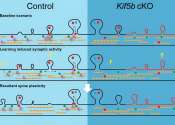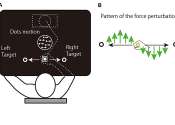Coordinated activity of mossy cells contributes to encoding of spatial and contextual memories, study finds
The hippocampus is a crucial region in the brain of mammals, which has been predominantly linked to the formation of memories. The retrieval of memories stored in the hippocampus at a later stage relies on a process known ...









